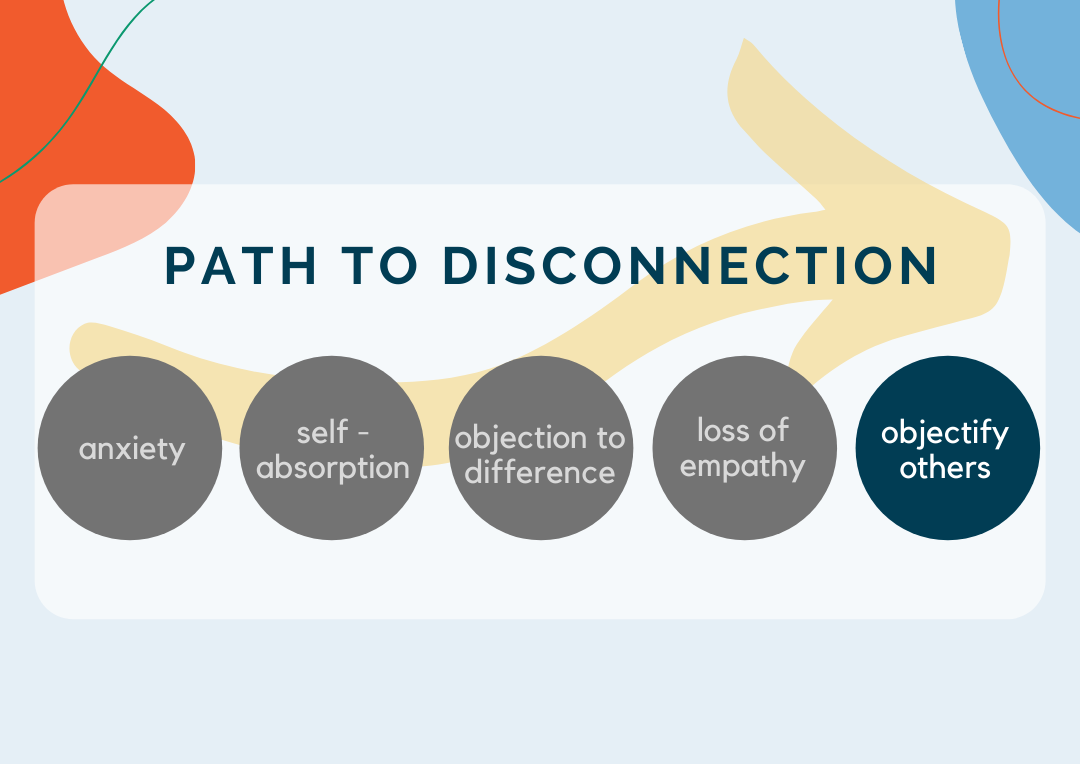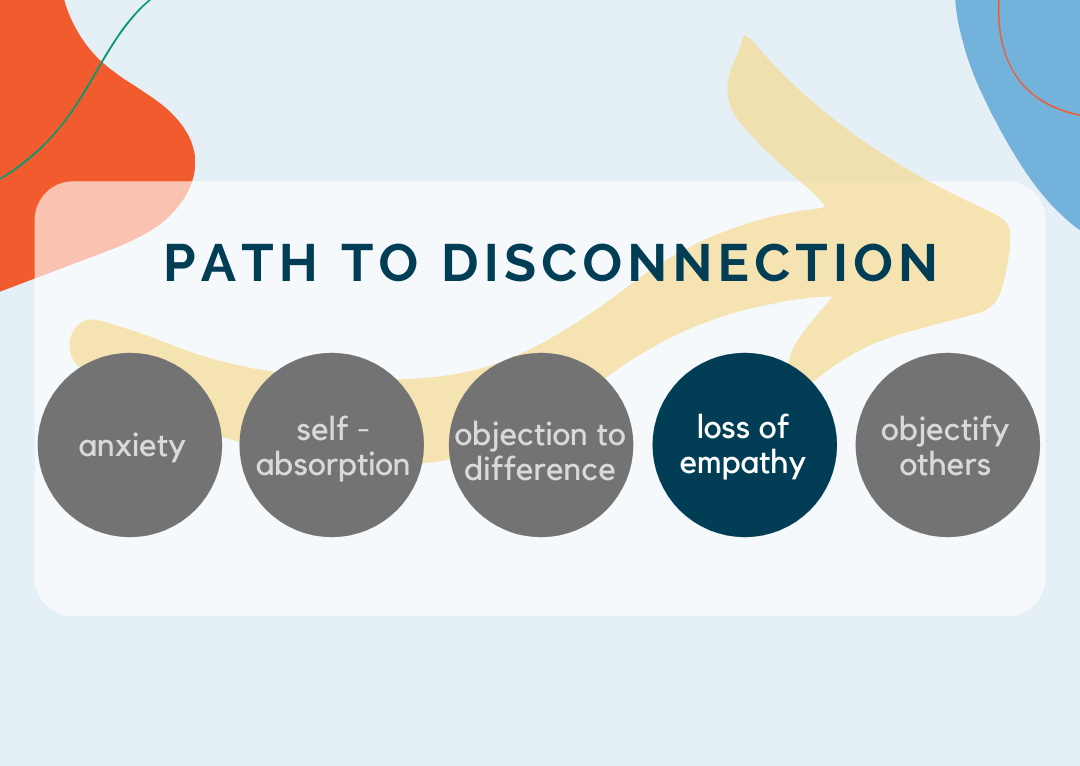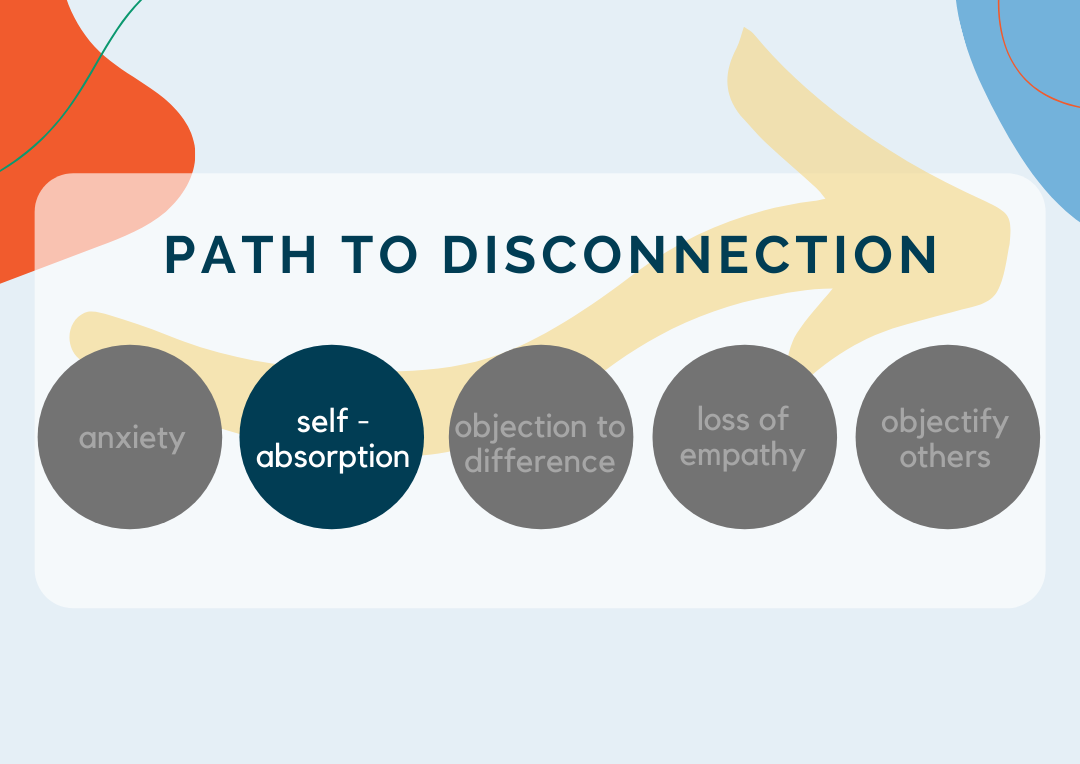OBJECTIFICATION OF OTHERS – Once we have lost our ability to empathize, we begin to see others as merely a means to an end. In this mindset, the Other becomes nothing more than an object, a way to get our needs met. When that “object” no longer serves us, it’s easy to become critical, hurtful, and distrustful; from there it’s a short leap to regarding them as unimportant and inconsequential if they are not meeting our immediate needs.
The fifth stage on the Path to Disconnection is the culmination of the four previous stages, working together to convince us that the struggle for connection is all about ME – getting MY needs met, focusing on MY pain, looking out for MY best interests only – to the exclusion of the needs of the Other, and, ironically, to the end that I may never experience the very sense of belonging and connecting that I have desired throughout this whole process.
The objectification of others is a natural consequence to our becoming fixated on our own pain and focused on getting away from that pain. It’s impossible to connect with anything or anyone when we are in a posture of getting away or avoiding. From our un-empathetic standpoint, other people have little significance to us other than as a means by which we can get our needs met; and frankly, nobody who is emotionally healthy wants to be that person.
Does any of this sound familiar?
- An angry partner tells you they feel invisible or taken advantage of.
- A colleague routinely feels left out or not heard by you at work.
- Achievement or accolades feel hollow and leave you longing for more.
- Your conversations rarely seem fulfilling or productive, and often worsen conflict rather than solve it.
If you’ve experienced any of these, then you, like billions of other humans, are likely in the throes of this awful cycle that plays out repeatedly in our lives.
An important thing to remember is that we ALL live out this tragic process to some extent throughout our lives. The degree to which it prevents healthy, gratifying, joyful connections depends on the degree to which we stay focused only on Self and unable to relate to others in meaningful ways.
This doesn’t have to be a life sentence of unfulfilling relationships and unrelenting desire for connection. If we become aware of what’s happening, we can take steps to change it. Safe Conversations can show you how to shift directions and begin relating to others in a way that supports connecting.
In our final segment, we’ll wrap up our discussion of the Path to Disconnection and share a few simple shifts you can make that will point you in a happier, more fulfilling direction – down the Path to RE-Connection!
Recommended Reading



